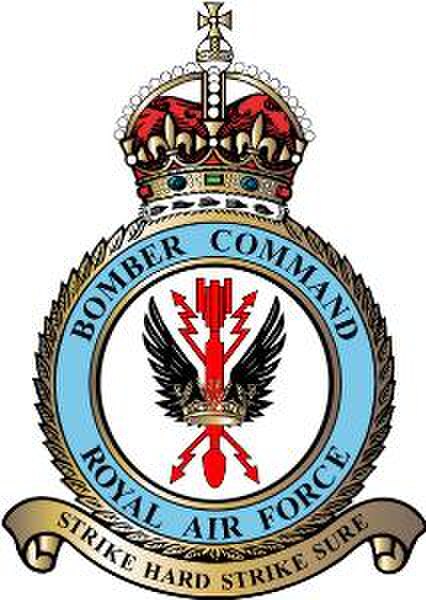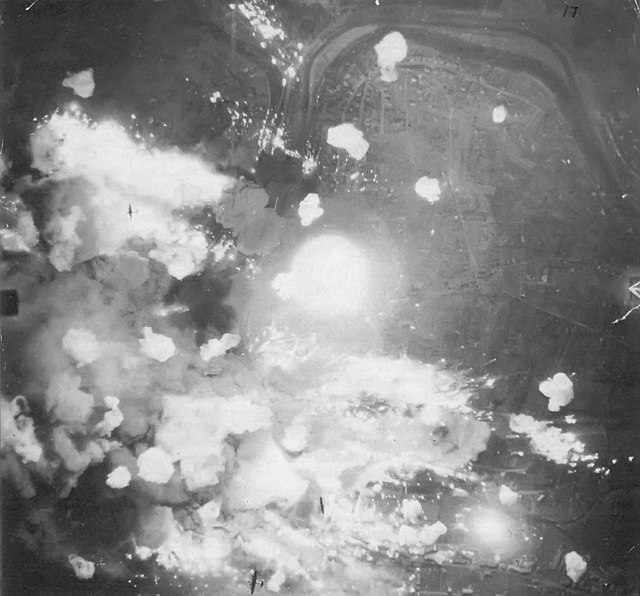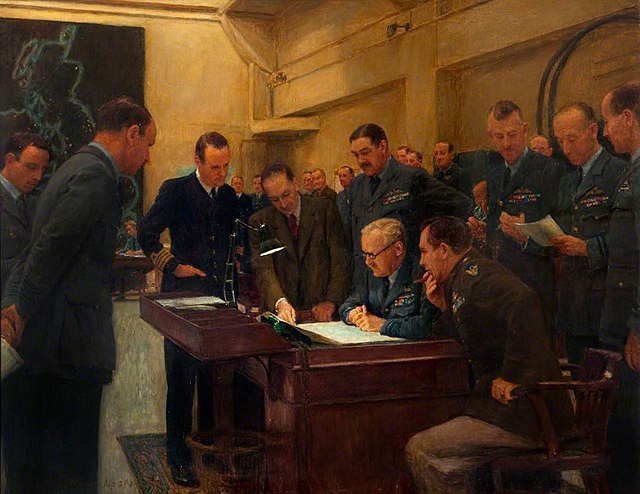No. 100 Group was a special duties group within RAF Bomber Command. The group was formed on 11 November 1943 to consolidate the increasingly complex business of electronic warfare and countermeasures in one organisation. The group was responsible for the development, operational trial and use of electronic warfare and countermeasures equipment. It was based at RAF stations in East Anglia, chiefly Norfolk.
A 101 Squadron Avro Lancaster with Airborne Cigar (ABC) radio jamming equipment - the two vertical aerials on the fuselage, Duisberg 1944
An electronic warfare Fortress III of 214 Squadron with nose-mounted H2S navigation radar
RAF Bomber Command controlled the Royal Air Force's bomber forces from 1936 to 1968. Along with the United States Army Air Forces, it played the central role in the strategic bombing of Germany in World War II. From 1942 onward, the British bombing campaign against Germany became less restrictive and increasingly targeted industrial sites and the civilian manpower base essential for German war production. In total 364,514 operational sorties were flown, 1,030,500 tons of bombs were dropped and 8,325 aircraft lost in action. Bomber Command crews also suffered a high casualty rate: 55,573 were killed out of a total of 125,000 aircrew, a 44.4% death rate. A further 8,403 men were wounded in action, and 9,838 became prisoners of war.
Bomber Command badge
A photograph taken during a typical RAF night attack with Avro Lancasters far below
97 percent of Wesel was destroyed before it was taken by Allied troops.
Operations Room Conference, Bomber Command, October 1943






